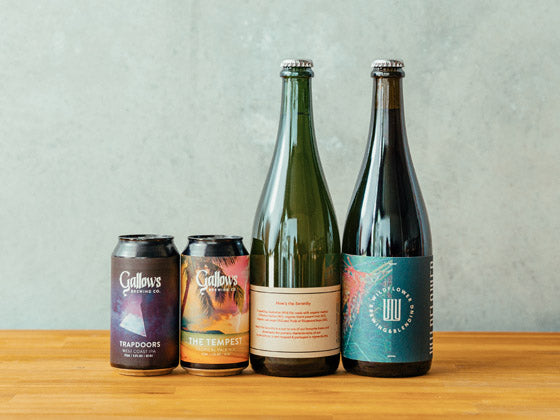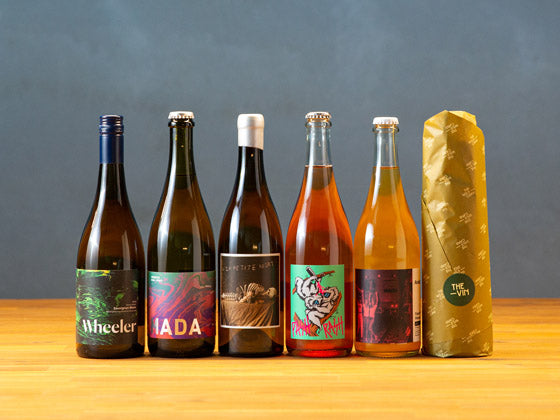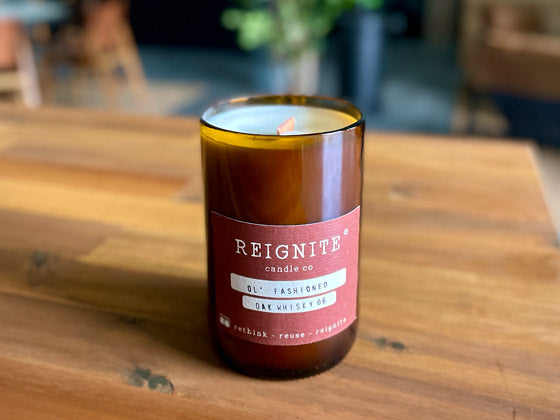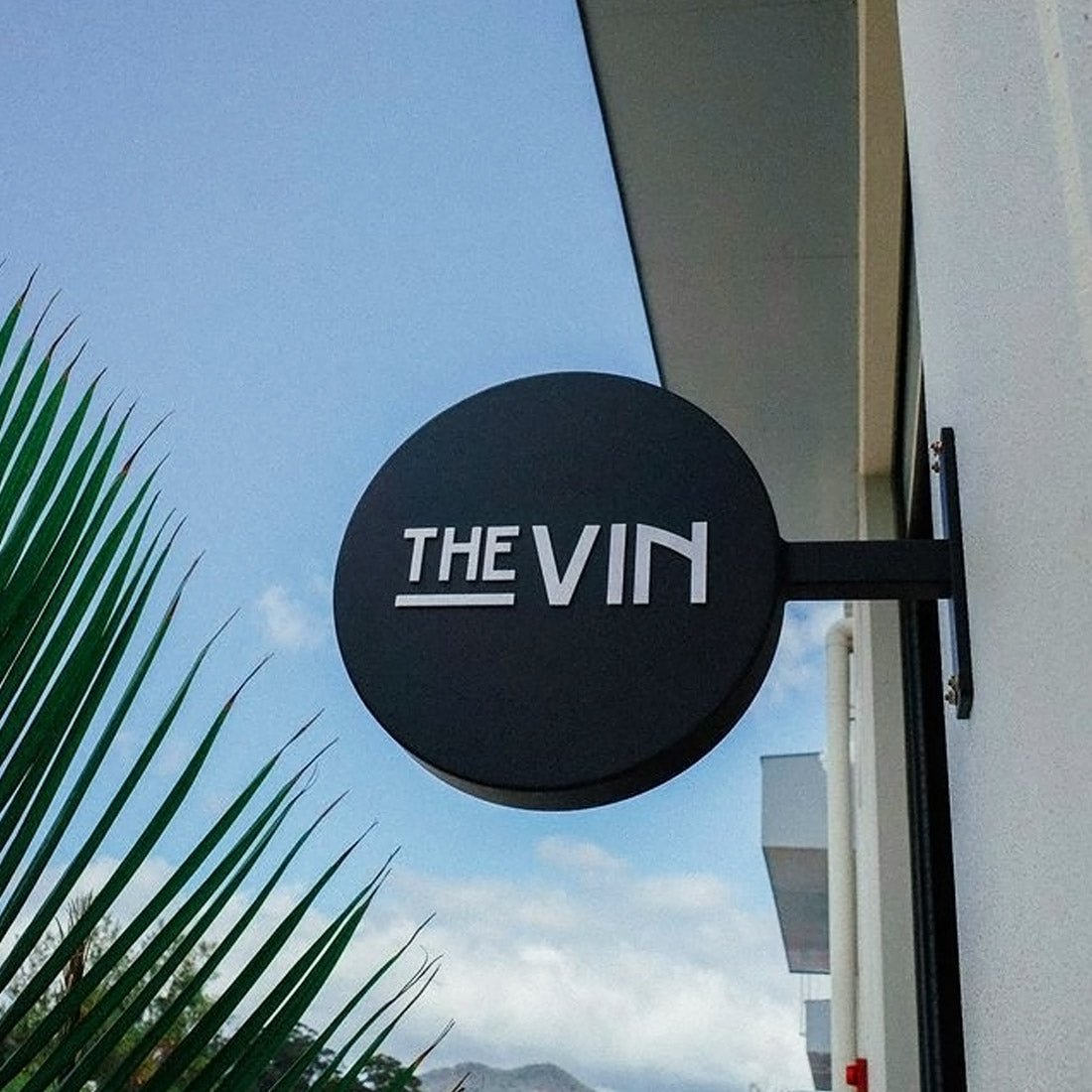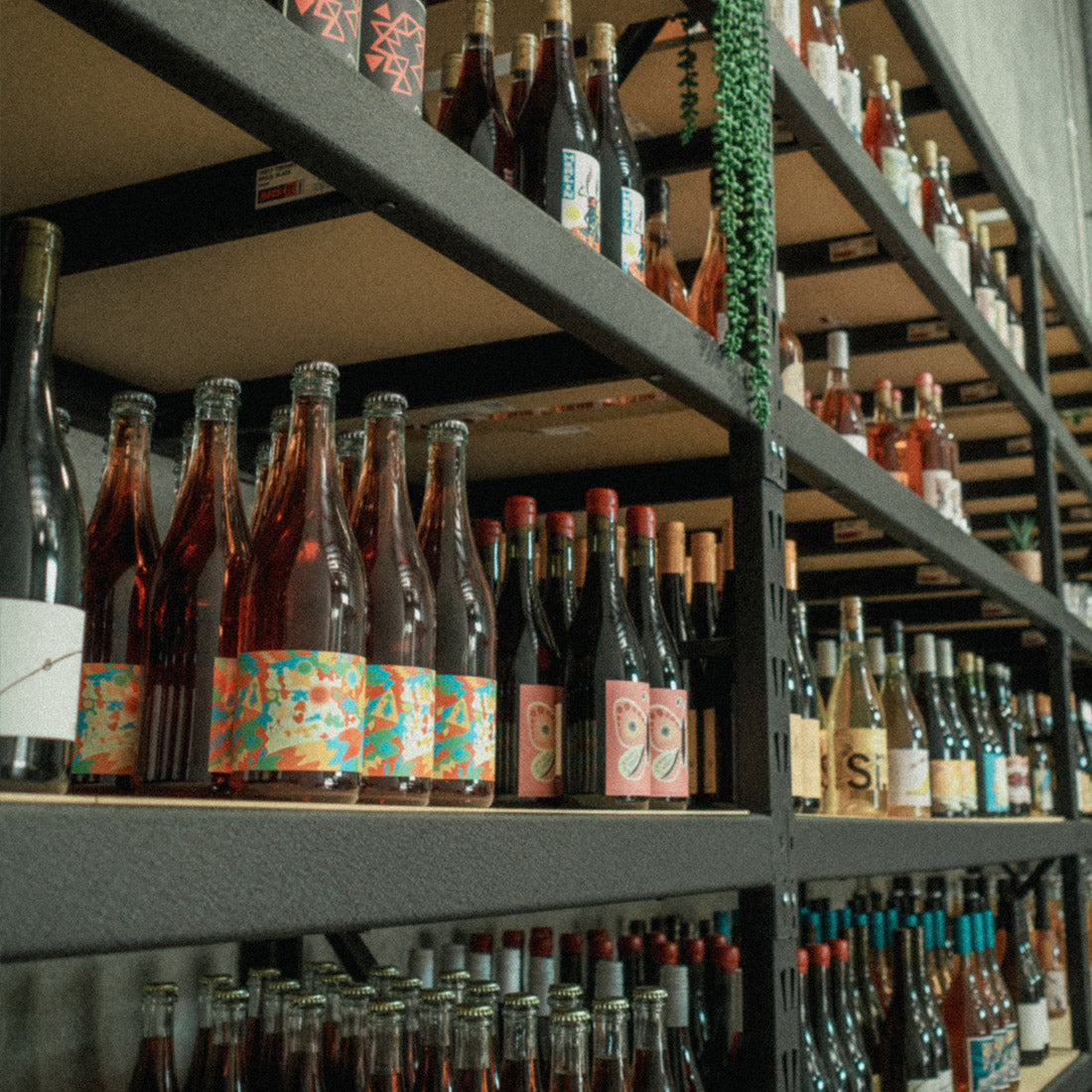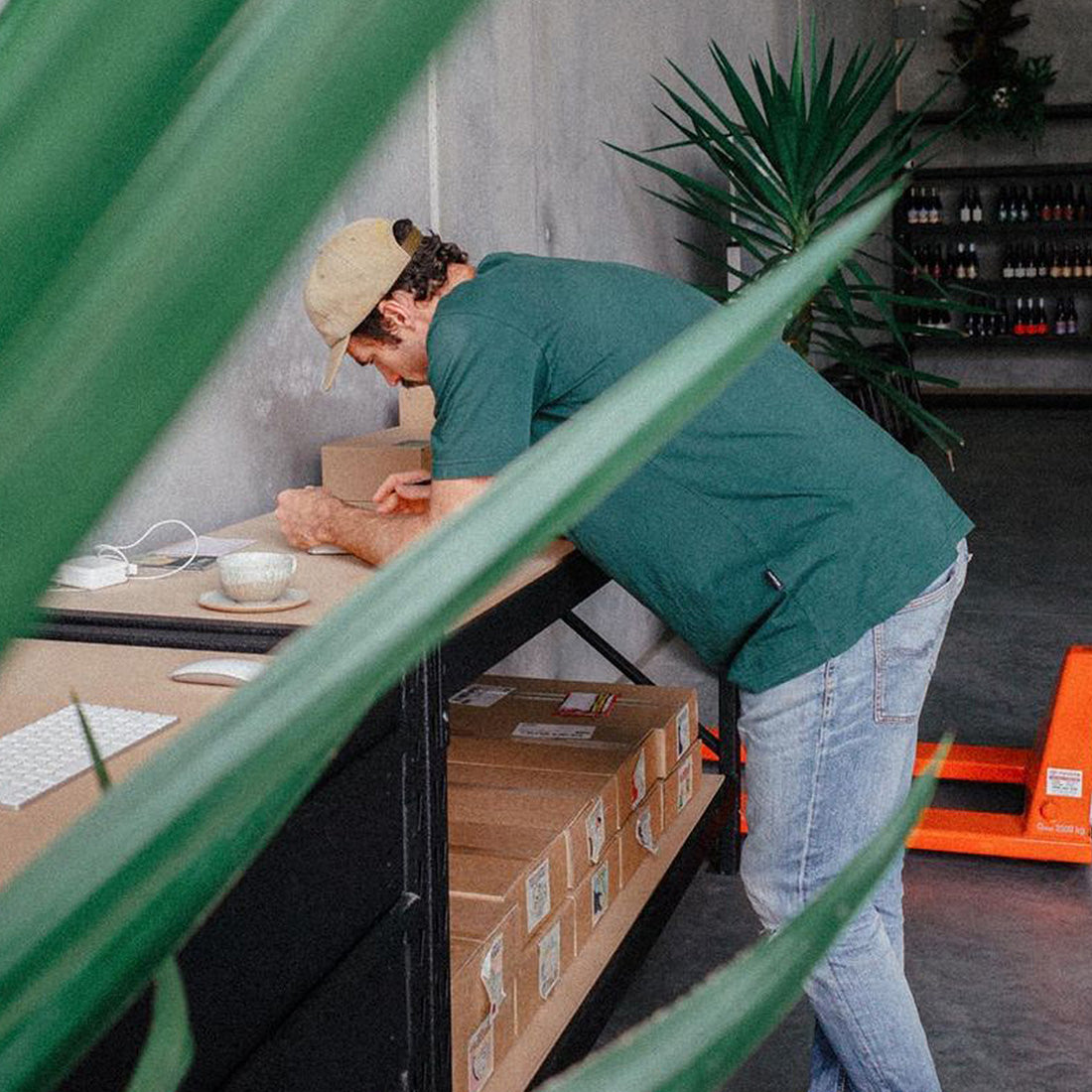We had the pleasure of chatting with Tom, one of the winemakers from Frankly This Wine Was Made By Bob. Have a little read with one of their wines in hand.
Dan (The Vin):
What got you into winemaking (the family business) and specifically lo-fi/natural wines?
Tom:
Bob and Adele (parents) moved to Blackheath in the late 1980's to raise a family in the Blue Mountains.
I was doing a science degree in microbiology and biochemistry at the University of Sydney. I then transferred after the second year to do viticulture and oenology at the University of Adelaide. I hadn't spoken to my parents about this prior to transferring and later realised that my dad at the same age wanted to study this course at Roseworthy (now Waite campus). This was a funny thing to find out after communicating my decision to my parents. My dad and mum have owned a real estate agency in Blackheath since they moved up here and now we run a bar/bottleshop/cellar door called Frankie and Mo Wine Shop and Bar.
As soon as I moved to Adelaide at the start of 2013 I started working for James Erskine at Jauma Wines in the Basket Range. At the same time I worked for more conventional wineries in the Barossa Valley/McLaren Vale. My preference despite studying a very conventional winemaking course was to prefer lo-fi wines and now I have furthered that to have a preference for zero zero wines. Nothing added and nothing taken away. I even ended up doing my honours at University in the impact upon consumers and wine chemistry of using or omitting preservative during petillant naturel wines.
Dan: What's your winemaking approach, philosophy, process?
Tom: For dad, Jess and myself we feel that the only true way to properly show/represent terroir is by doing natural wine. Our definition is as follows.... Organic or biodynamic grapes, wild fermentation, hand harvesting, no fining, no filtration, no winemaking additions (so no acidification for example) and a max of 30ppm of total sulfur added and only added at racking to prepare for bottling. Quite strict parameters, but it is what we feel makes the best and most expressive wines.
Dan: Why do you continue to make wine?
Tom: Why is an interesting question.... I guess we hope for a better world.... Or if we are to produce a drug/poison we want people to at least be consuming something that doesn't have a lot of crap in it. The most important thing is farming. Trying to leave the planet in a better place for future inhabitants. Maybe even help to reverse climate change. It is also nice to give people joy, not much beats the feeling of giving someone a taste of a wine that you have made and the reaction when they find it remarkable and interesting.
Dan: What part of the winemaking process do you love the most?
Best part of the process for us is the growing. We farm a 4.5 hectare vineyard in the Kanimbla Valley (part of the Blue Mountains). The vines are 25 years old and almost died during the last drought as they are dry grown. We do all of the pruning and green season work ourselves (rare again in Austarlian natural wine/lo-fi winemaking). When you live and work with the vines all year it is such an honour to then harvest that fruit that you have nurtured for so long.
For all of the frankly wines they are hand harvested. Often we end up doing a lot of the harvesting ourselves (even this is rare in the Australian natural/lo-fi winemaking community), we love trying to get a feeling of a place if we are buying the grapes. We think that gives us an ability to make better wine. Everything is then wild fermented in our shed, and 95% of the wines are aged in old french oak barrels on full lees (dead bacteria/yeast) and then is racked and bottled by gravity. 90% of the wines are preservative free. It is added if we feel that the wine won't handle how oxidative the bottling process is.
Dan: How would you define/describe the types of wines you make?
We have quite a few ranges of wine. We make roughly 20 different wines every year and harvest roughly 12 different varietals. They range from more classic single variety and sometimes single vineyard wines to wilder expressions of wine with reds and whites mixed together. For instance our blanc, rose, red range changes every year depending on what varieties are available in that year and how we decided to ferment those varieties. We then blend those wines to taste, to make sure that we don't reproduce each year and really express the difference between the years. This is definitely a very different approach on these wines. Trying to take away the winemaking traditional ideals of what wine should be. Make them more joyfull and expressive.
Dan: What are some of the biggest challenges you experience?
Biggest challenges for us are in the growing. shocking amounts of rain over the last few years. Which makes growing extremely difficult when you are farming organically with regenerative practices. massive amounts of by hand work and spraying by hand.
The hardest bit in the winery is getting the wine into bottle when you are not using preservatives. There is a lot of risk when making wine like this. We feel though that making wine this way is worth the risk. To do this we blanket the wine often with lots of gases. Nitrogen in racking the wine and argon during the actual bottling process. Then on the selling side of things... It is very difficult to connect with consumers, to explain to consumers why the wine costs more. How the wine has a lot more labour used in the making and a lot more risk is attached to the processes we use. Difficult to explain how what we do is very different to what you can buy at the average bottleshop. This is ultimately to why we opened the bar/shop/cellar door, so that we can connect more with consumers.
Dan: Do you have a favourite type of wine to drink?
Favourite types of wine.... Currently I drink a lot of rose and white wine. I find that these styles are more consistent in the zero zero natural wine category. We also try to drink and support as much Australian as possible. So producers like The Other Right, Scintilla, Jauma, Lucy Margaux, Borachio, Limus are often very featured in our joint and in what we are drinking. We DEFINITELY make some of the best natural wine in the world in Australia and often the wine is a lower price and better than the European equivalents.
Dan: How long do you typically keep your clothes (thread bear or neat and new ;)?
Hahahaha great question! Dad and I wear our clothes until they are falling apart on our bodies. Jess is definitely more selective in her clothing choices than dad and I. But she also gives everything a good long life.








